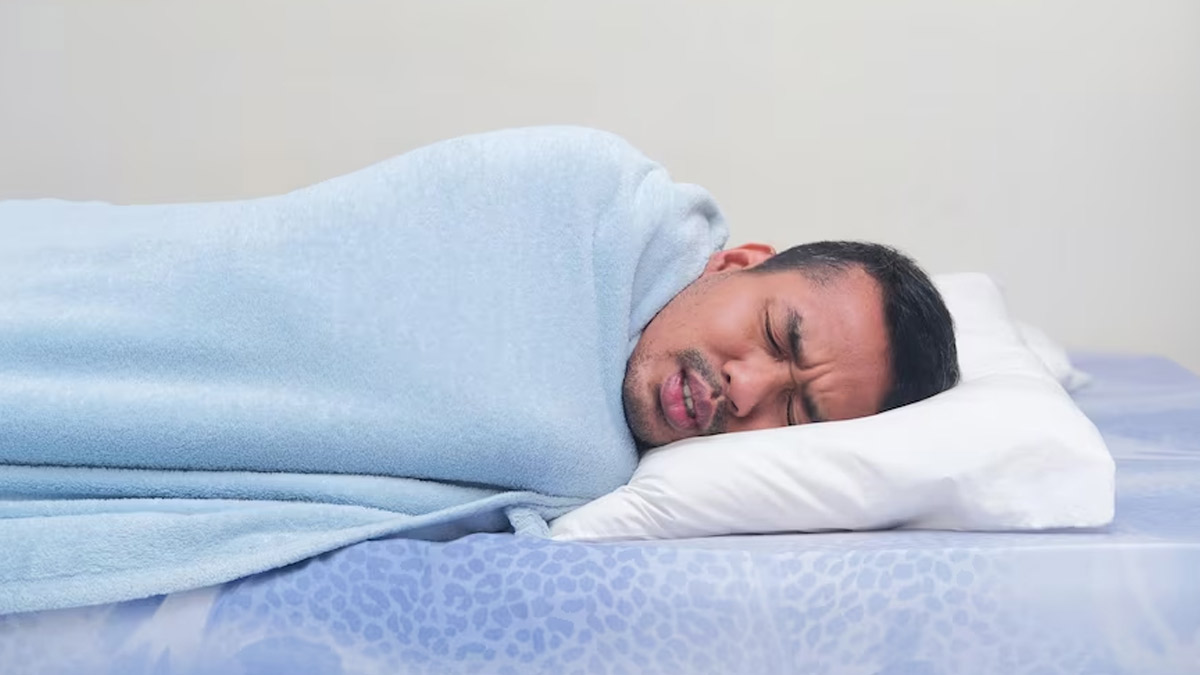
Sleep apnoea is a common but serious sleep disorder where breathing repeatedly stops and starts during sleep. This condition can lead to significant health issues, including hypertension, cardiovascular disease. To understand what can exacerbate the symptoms of sleep apnea is important for managing and potentially mitigating its impact on health.
Table of Content:-
“Sleep apnoea disrupts our sleep, it is a constant and often unnoticed threat to our overall health. Its covert nature lies in its silent strikes, affecting numerous lives without sounding any alarms. It is distinguished by the periodic interruption of breathing during sleep and has two forms: Central Sleep Apnea (CSA) and Obstructive Sleep Apnea (OSA). According to the doctor, CSA is associated with neurological abnormalities or underlying medical diseases, whereas OSA is caused by collapse or obstruction in the upper airway and is more commonly seen in obese patients,” said Dr Sandeep Nayar, Senior Director and HOD-Chest and Respiratory Diseases, BLK-MAX Super Speciality Hospital, New Delhi. Here are ten factors that can worsen sleep apnea symptoms.
1. Obesity
According to HHS Public Health Access, sleep apnoea affects 3 to 7% of the general population in males and 2 to 5% in women. Obese people face very high rates.

Also read: Expert Explains The Hidden Connection Between Snoring, Sleep Apnoea, And Heart Health
Weight gain, especially around the neck, increases the risk of airway obstruction during sleep. Fat deposits around the upper airway can hinder the air's flow into the lungs, intensifying the symptoms of obstructive sleep apnea.
2. Alcohol Consumption
Alcohol relaxes the muscles in the throat, which can lead to more frequent and severe airway obstructions during sleep. Drinking alcohol, especially close to bedtime, can significantly exacerbate sleep apnea symptoms.
3. Use of Sedatives
Similar to alcohol, sedatives and certain medications like sleeping pills and some types of antidepressants relax the central nervous system, causing the muscles controlling the airways to relax and increase the risk of obstructions.
4. Smoking
Smoking can increase inflammation and fluid retention in the airway, which worsens sleep apnea. The irritants in smoke can also affect the lining of the throat and lungs, further aggravating breathing difficulties during sleep.
5. Sleeping Position
Sleeping on your back (supine position) can cause the tongue and soft palate to rest against the back of the throat, blocking the airway. This position can markedly worsen the symptoms of sleep apnea compared to sleeping on one's side.
6. Nasal Congestion
Any condition that causes nasal congestion, such as allergies or sinus issues, can impair the ability to breathe properly at night. A congested nose encourages mouth breathing, which increases the likelihood of airway collapse.
7. Endocrine Disorders
Conditions like hypothyroidism and acromegaly can exacerbate sleep apnea. Hypothyroidism can lead to a relaxation of airway muscles, and both conditions can contribute to anatomical changes that make airway obstruction more likely.
8. Family History
Genetics play a role in sleep apnea. Hereditary traits such as the structure of the jaw, airways, and body mass can influence the development and severity of sleep apnea, making it more challenging to manage.
Also read: Are You Struggling With Sleep Apnoea? Here Are Some Methods To Tackle It
9. Age
As people age, the risk of sleep apnea increases. Muscle tone decreases, and the risk of fat accumulation around the neck area grows, both factors that can exacerbate the symptoms of sleep apnea.
10. Gender
Men are generally more likely to suffer from sleep apnea than women, although the risk for women increases after menopause. Hormonal protection is thought to play a role, but anatomical differences also contribute to this discrepancy.
If you have decided to manage sleep apnoea, it will need an approach that will include lifestyle changes, medical interventions, and sometimes surgical procedures. Being aware of and controlling the factors that can exacerbate sleep apnea symptoms is a crucial part of this management strategy.
If you suspect you have sleep apnea, it’s important to seek a professional medical evaluation to get a proper diagnosis nd tailored treatment plan. By addressing these exacerbating factors, individuals with sleep apnea can improve their sleep quality and reduce the risk of developing associated health complications.
Also watch this video
How we keep this article up to date:
We work with experts and keep a close eye on the latest in health and wellness. Whenever there is a new research or helpful information, we update our articles with accurate and useful advice.
Current Version
